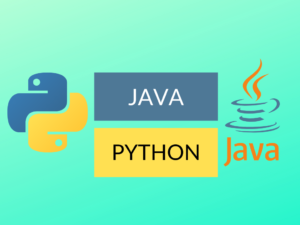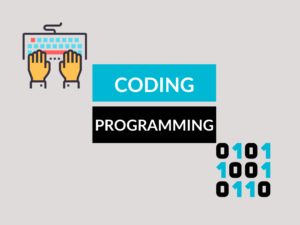Scripting vs. Programming Languages: Understanding the Differences
Introduction:
In the world of computer science, scripting and programming languages play significant roles. While they may seem similar, they have distinct differences that set them apart. In this article, we will explore the definitions, examples, and uses of scripting and programming languages. Additionally, we will provide a comprehensive table highlighting the differences between the two. So, let’s dive in!
What is Scripting?
Scripting refers to the process of writing scripts or commands to automate specific tasks. It involves using a lightweight programming language to create scripts that are interpreted at runtime. Scripts are generally written to control software applications or automate repetitive tasks. They are often used for tasks such as system administration, web development, and data analysis.
Examples of Scripting Languages:
Some examples of scripting languages include:
- JavaScript
- Python
- Ruby
- Perl
- Shell scripting (e.g., Bash)
Uses of Scripting:
Scripting languages find applications in various domains, including:
- Web development: JavaScript is widely used for client-side scripting.
- System administration: Shell scripting helps automate system tasks.
- Data analysis: Python and R are commonly used for data manipulation and analysis.
- Game development: Lua scripting is popular in game development.
What are Programming Languages?
Programming languages are formal languages used to develop software. They encompass a set of rules and syntax that allow programmers to create software applications, algorithms, or systems. Unlike scripting languages, programs written in programming languages are compiled into machine code, making them executable without interpretation.
Examples of Programming Languages:
Some popular programming languages are:
- C
- Java
- Python
- C++
- C#
Uses of Programming Languages:
Programming languages have a broad range of applications, including:
- Software development: Languages like Java and C# are used for building complex software applications.
- Mobile app development: Objective-C and Swift are popular for creating iOS applications.
- Data science: R and Python are extensively used for statistical analysis and machine learning algorithms.
- Embedded systems: C and C++ are commonly used for programming microcontrollers and IoT devices.
Differences between Scripting and Programming Languages:
| Difference Area | Scripting Languages | Programming Languages |
|---|---|---|
| Execution Method | Interpreted at runtime | Compiled into machine code |
| Performance | Generally slower | Generally faster |
| Code Structure | Loosely structured | Strictly structured |
| Development Time | Quick development and iteration | Time-consuming development process |
| Compilation | No compilation step required | Compilation step necessary |
| Error Handling | Graceful error handling | Compile-time error handling |
| Portability | Highly portable | Platform-dependent |
| Typing | Loose typing | Strong typing |
| Learning Curve | Relatively easier to learn | Steep learning curve |
| Application Domain | Often used for automation, web development, and system administration | Well-suited for software development, algorithms, and complex systems |
Conclusion:
In summary, scripting and programming languages may share similarities, but their differences are crucial. Scripting languages provide quick development with interpreted execution, suitable for automation and web development tasks. On the other hand, programming languages offer faster performance and more rigorous software development capabilities. Choosing the right language depends on the specific requirements of the project.
Knowledge Check:
Test your knowledge about scripting and programming languages with the following quiz:
1. Which type of language is interpreted at runtime?
a) Scripting language
b) Programming language
c) Both
2. Which language is commonly used for web development tasks?
a) Java
b) Python
c) JavaScript
3. Which type of language requires a compilation step?
a) Scripting language
b) Programming language
c) Both
4. Which language is known for its fast performance?
a) Python
b) JavaScript
c) C++
5. Which language has a steep learning curve?
a) Python
b) JavaScript
c) C++
6. Which language is commonly used for data analysis?
a) R
b) C#
c) Swift
7. What is the main difference between scripting and programming languages?
a) Execution method
b) Code structure
c) Portability
8. Which language is suitable for software development and algorithms?
a) JavaScript
b) Python
c) C
9. Which type of language has strictly structured code?
a) Scripting language
b) Programming language
c) Both
10. Which language is platform-dependent?
a) Python
b) Java
c) JavaScript
Answers:
1. a) Scripting language
2. c) JavaScript
3. b) Programming language
4. c) C++
5. c) C++
6. a) R
7. a) Execution method
8. c) C
9. b) Programming language
10. b) Java
Related Topics:
- JavaScript vs Python: Understanding the Differences
- Difference between Scripting and Markup Languages
- Benefits of Using Scripting Languages in Web Development
- Choosing the Right Programming Language for Your Project
- Scripting vs. Compiled Languages: Pros and Cons



